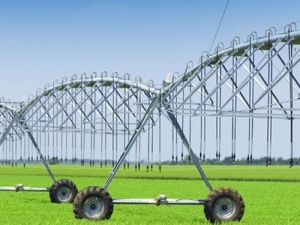Editorial: Happy days
OPINION: The year has started positively for New Zealand dairy farmers and things are likely to get better.
 New measures to improve the management of New Zealand's rivers, lakes, aquifers and wetlands have been proposed at the Bluegreens Forum in Tekapo on Saturday.
New measures to improve the management of New Zealand's rivers, lakes, aquifers and wetlands have been proposed at the Bluegreens Forum in Tekapo on Saturday.
New measures to improve the management of New Zealand's rivers, lakes, aquifers and wetlands have been proposed at the Bluegreens Forum in Tekapo on Saturday.
A consultation document was released by Environment Minister Dr Nick Smith and Primary Industries Minister Nathan Guy.
"New Zealand has an abundance of freshwater but changes are needed to better manage water quality and improve efficiency of use," Smith and Guy say.
The 23 initiatives in the document include:
· National regulations to get stock out of waterways;
· Strengthening the national requirement on councils to set limits;
· Standardised water permit conditions on efficient use of water and minimising nutrient loss;
· Improved iwi involvement in council development of water plans and water conservation orders; and
· An additional $100 million clean-up fund for lakes, rivers, and wetlands.
"We need national regulations to prevent stock getting access to waterways. The problem with each regional council making their own rules is that most have not done so, and for those that do enforcement is cumbersome and expensive. It is also confusing to have each council having different stock types, different definitions of a river and different requirements of when fences are required," Dr Smith says.
"These proposed regulations set a clear timetable starting with all dairy and pig farms by July 2017, and progressively including dairy support, beef and deer farms relative to steepness of country by 2030 and are to be backed up by a new instant fine regime," Dr Smith says.
"Farmers have made great progress in fencing nearly 24,000km of waterways, but it is now time for regulation to bring the stragglers in line. I commend the work of the Land and Water Forum and the farmer representatives involved who have done a good job of ensuring these proposed regulations are fair and practical. This approach puts the priority on lowland intensive farming and recognises the impracticality for farmers fencing in some of New Zealand's steep backcountry," Guy says.
"We are proposing to improve the National Policy Statement on Freshwater that councils are required to implement. The requirement to improve overall water quality is narrowed from the region to freshwater management units – most commonly catchments. The Macroinvertebrate Community Index (MCI) is being added to better protect ecological health and the bottom line standards are proposed to be applied to coastal lagoons," Dr Smith says.
Guy says New Zealand can achieve improved water quality and growth in agriculture with better infrastructure, greater efficiency of water use and innovation in farming practices.
"These proposals require councils to apply technical efficiency standards to water use permits and good management practice rules to limit nutrients in water consents. We are also proposing to make it easier to transfer consents to more efficient or higher value uses."
Smith says proposals include improved processes for iwi to be involved in the development of council water plans and water conservation orders. Councils will need to engage with iwi on identifying water bodies of significance to them and the values that need to be protected.
"The next steps on freshwater management in this document build on the work of the national regulations for water metering introduced in 2010, the 2011 National Policy Statement on Freshwater, the 2014 National Objectives Framework and the new Environmental Reporting Act 2015. Credit for this progress and these next steps lie with the committed people and organisations involved with the Land and Water Forum and the Freshwater Iwi Leaders Group," the Ministers say.
Public submissions on these proposals close April 22 and a series of public meetings and hui will be held in March and April. Further technical work will still be required on developing more effective and efficient tools on allocation. The proposals in this paper will then be refined into amendments to the Resource Management Act and the National Policy Statement, as well as new national regulations.
"We will not fix our freshwater problems with slogans or quick-fix solutions. Many of our water bodies are in catchments with long hydrological cycles that will take decades to respond. These next steps build on our previous work and are about a realistic programme of improved management and tighter regulations that will get water quality onto an improving path," the Ministers concluded.
The World Wide Sires National All Day Breeds Best Youth Camp Best All Rounder plaudit has become family affair, with 2026 Paramount Cup winner Holly Williams following in her sister Zara's footsteps.
DairyNZ is giving New Zealand farmers a unique opportunity to gain hands-on governance and leadership experience within the dairy sector.
Herd improvement company LIC has posted a 5.2% lift in half-year revenue, thanks to increasing demand for genetics.
According to the latest Fresh Produce Trend Report from United Fresh, 2026 will be a year where fruit and vegetables are shaped by cost pressures, rapid digital adoption, and a renewed focus on wellbeing at home.
The Roar is a highlight of the game hunting calendar in New Zealand, with thousands of hunters set to head for the hills to hunt male stags during March and April.
OPINION: The past few weeks have been tough on farms across the North Island: floods and storms have caused damage and disruption to families and businesses.

OPINION: Meanwhile, red blooded Northland politician Matua Shane Jones has provided one of the most telling quotes of the year…
OPINION: This old mutt has been around for a few years now and it seems these ‘once in 100-year’ weather…